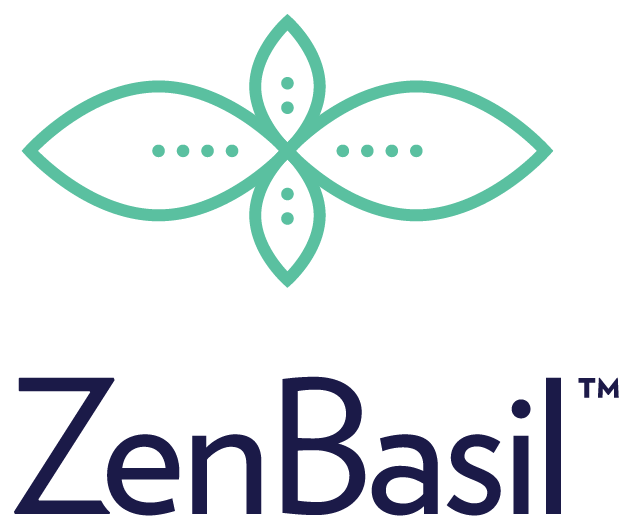Nutrients Made by Labs vs. Nutrients Grown by Ethical Small Farmers: What’s Really in Your Fiber and Prebiotic Supplement?
Before you scroll down to the recipe at the bottom of this page, it’s important to understand where your nutrients come from. In the health and wellness world, there’s a lot of confusion about fiber and the difference between nutrients from whole foods and supplements. This blog will break down how the industry works, where these nutrients originate, and why quality nutrients grown by ethical small farmers are superior.
Why It Matters Where Your Nutrients Come From
Nutrients made by sunlight through organic farming are optimal for your body, unlike many supplements that are extracted and manipulated in labs. Often, these supplements only provide a fraction of the full nutrient found in real whole foods. What’s worse, most supplements aren’t organic, meaning they’re sprayed with up to 250 different chemicals, including glyphosate.
Glyphosate, a chemical herbicide, acts like an antibiotic for plants. Crops treated with it are more likely to harm your gut health rather than support it. Since your immune system is key to longevity and basic health, it’s crucial to choose your nutrients wisely.
Who’s Controlling Your Supplements?
The supplement industry is big business. Major pharmaceutical companies and conglomerates like Nestlé, Bayer, Pfizer, and even Clorox supply raw ingredients and often invest in or acquire supplement brands. When health and wellness influencers promote prebiotics, probiotics, electrolytes, and other supplements, these brands are likely backed by big money.
Top influencers can earn thousands, if not hundreds of thousands, of dollars per endorsement. This means millions are invested in these supplement brands. But who’s behind these investments, and what’s their motive? Big businesses control the information you receive, the products you see, and ultimately, what you consume.
The Role of Glyphosate and Lab-Made Nutrients
Many supplements come from crops treated with glyphosate, which is harmful to gut health and reduces the nutritional value of these crops. Relying on these supplements means you might be ingesting harmful chemicals along with your nutrients. This is part of a larger problem where a few companies control much of the food and supplement market, contributing to widespread health issues.
Zen Basil vs. Extracted Probiotics: Why Whole Foods Matter
Instead of relying on lab-made supplements, consider sourcing your nutrients from real, whole foods like Zen Basil seeds. These organic, glyphosate-free seeds provide not just fiber and prebiotics, but a complete range of nutrients that work together to support your health.
Why Zen Basil Seeds Stand Out:
1. Cleanses Toxins from Your Body: Zen Basil seeds offer both soluble and insoluble fiber, which help detoxify your body and support regular bowel movements.
2. Provides a Positive Source of Energy: The nutrient profile of Zen Basil seeds, including omega-3, calcium, magnesium, potassium, and plant-based protein, delivers sustained energy throughout the day.
3. Nourishes at the Cellular Level: Zen Basil seeds nourish your body at the cellular level, helping you stay fuller for longer. They support cell repair and growth, ensuring your body functions optimally.
Understanding the Market Influence
It’s important to know that about 10 conglomerates control 90% of the products you purchase. These companies not only determine what products are available but also how they’re marketed. Their influence over trusted health advisors and wellness influencers can push products that might not be in your best interest.
The Takeaway: Be Informed, Choose Wisely
The next time you see a supplement promoted by a trusted influencer, consider who’s really behind it. Supplements are lab-made, often manipulated and heavily processed. Understanding whether your nutrients come from a lab or a small ethical farm can make all the difference in your health.
Choose real, organic, glyphosate-free foods like Zen Basil seeds, and take control of your nutrition from the ground up. To ensure the products you buy are truly organic, verify their claims using the Organic Integrity Database. By prioritizing whole foods, you can support your health in ways that lab-made supplements can’t.
Choose Zen Basil seeds and bring more Zen into your life.
Now that you understand the importance of where your nutrients come from, here’s a delicious recipe to start your journey to better health:
Zen Basil Pudding (3 Clean Ingredients):
- Protein: 20g per serving
- Fiber: 15g per serving
- Micronutrients: Omega-3, Polyphenols, and more
This pudding is your secret weapon for longevity and youthful skin.
Enjoy the recipe and the benefits of whole, organic nutrients!
Ingredients:
1/2 cup Zen Basil Seeds
2 cups coconut milk
2 cups Greek yogurt, divided
10-20 pineapple cubes, with juice
4 tablespoons coconut flakes
Optional: Double the optional ingredients to 2 dashes of salt and 2 tablespoons of maple syrup or honey (all organic).
Instructions:
1. In a bowl, combine Zen Basil seeds, coconut milk, and half of the Greek yogurt. Stir well and refrigerate overnight to allow the seeds to expand and thicken.
2. Before serving, mix the remaining Greek yogurt with the pineapple cubes, including the juice, and coconut flakes. If desired, add a dash of salt and sweeten with maple syrup or honey.
3. Layer the pineapple mixture over the chilled Zen Basil pudding. Top with additional coconut flakes and a pinch of sea salt for a finishing touch.
Enjoy your delicious and nourishing tropical treat!
Makes 4 servings of Zen Basil Seed pudding



